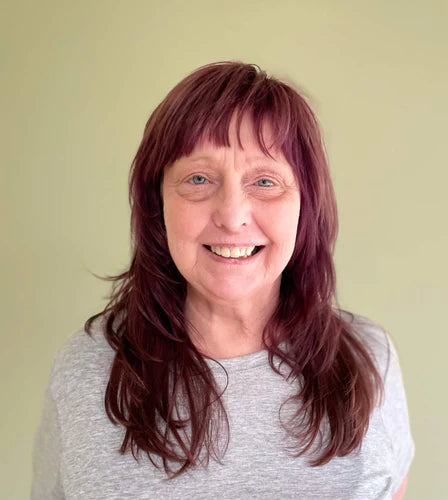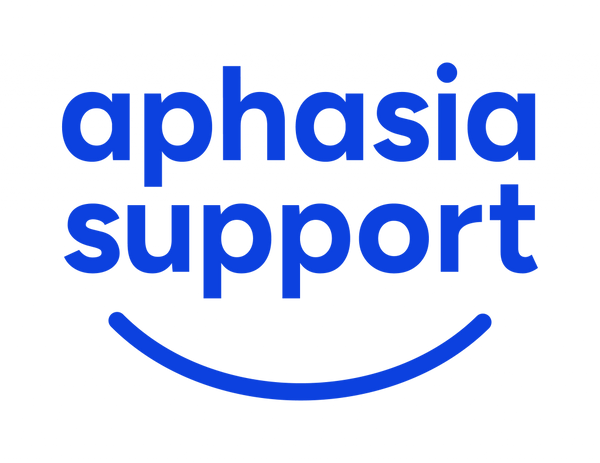Helen Brier

Helen Brier’s life changed overnight when she suffered a stroke, leaving her with aphasia. Here, alongside her sister Lucy, she shares her story and inspiring road to recovery…
In September 2021, at the height of covid restrictions, Helen (55) from Holmfirth found herself in hospital with suspected pneumonia. While she was on the ward at Calderdale Royal Hospital recovering, she sadly suffered a stroke.
“One day I fell out of bed. One of the staff told me to ‘get up’ but I couldn’t”, Helen explains.
Helen’s sister Lucy received a phone call from the hospital to tell her that Helen had had a stroke and they had discovered two cerebral aneurysms which meant she was unable to have the thrombolysis treatment. The team were unable to tell Lucy about Helen’s prognosis, but when Lucy visited her, she was laid in bed, her face had dropped, her right side was floppy and she was unable to speak.
Helen was soon moved to the stroke unit, which had stricter visiting times due to the ongoing pandemic. Helen was only allowed one visitor, for one hour, twice a week, and video calls were challenging due to Helen’s inability to speak or hold the device.
Lucy explains: “We had no clue what the impact on Helen was. Helen is usually very active on social media, but she was unable to use her tablet or phone. It was like she just disappeared.”
Helen had received many cards and letters during her hospital stay but Lucy found them unopened in Helen’s bag. It wasn’t until Helen came home, two months after her stroke, that Lucy realised that Helen could also no longer read.
Helen was discharged in November 2021. By the time she got home, her mobility was improving. During her time on the Stroke Unit, Helen received daily physiotherapy, occupational therapy and speech and language therapy and was making good progress. She was walking with a stick and washing and dressing herself. However, her speech remained a challenge.
Lucy arranged private speech and language therapy during this period but soon after Helen started work with Locala, who provided excellent care, including occupational therapy, physiotherapy and speech and language therapy, for six months.
Keen to continue Helen’s recovery, Lucy searched online for speech and language community support. This is how she found Aphasia Support.
The sisters are now regulars at our Aphasia Café in Halifax and attend every fortnight. The café is attended by those who are aphasic. Friends and family are welcome too. It’s a caring, proactive mix of peer support and structured goal setting. Helen likes that everyone has a shared desire to get better.
Helen says: “It’s great. It’s getting better every time we go. You have to think about other ways to say something. If you get stuck with the word cup, say’ the thing I put coffee in’.” Lucy adds, “They all help and encourage each other.”
Helen has also benefited from our App Group at Dewsbury Health Centre – a 12-week programme of one-to-one intervention, using technology to improve her communication skills.
Working with one of our brilliant speech and language student volunteers, Helen was encouraged to use synonyms rather than struggling to find a specific word. Helen also worked on writing by hand, something that she both enjoys and finds useful. By the end of the programme, she could write half a side of A4.
Helen and Lucy want as many people as possible, especially healthcare professionals, to know about ‘Aphasia Support’. They feel there needs to be a more effective way to tell stroke survivors about places and community groups that can help them, especially given the challenges they face with communication.
To find out how we can support you, get in touch today. https://aphasiasupport.org/contact/
